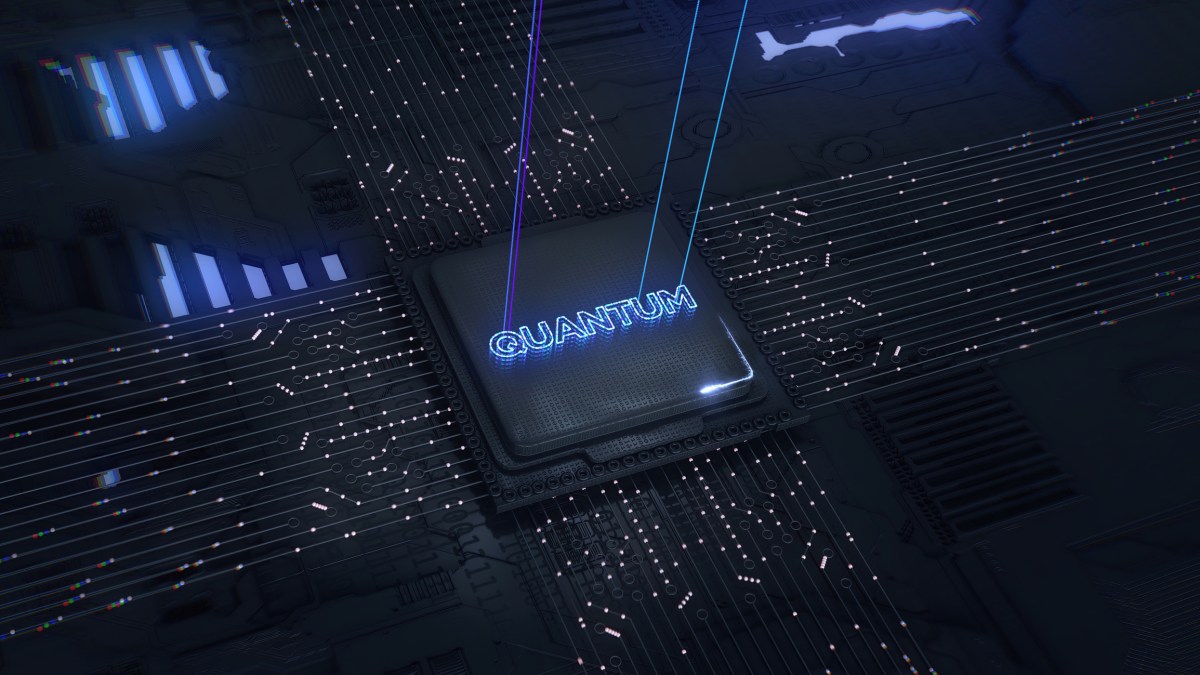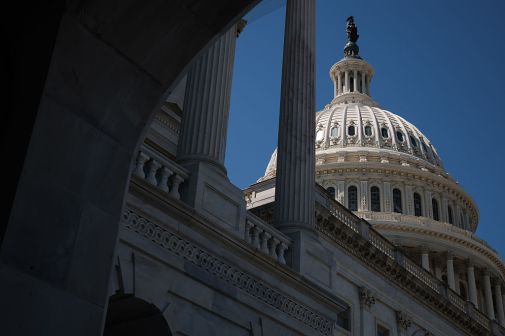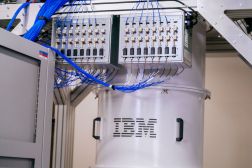House panel calls for a DOD quantum computing Center of Excellence

A new proposal from House lawmakers could set the Defense Department on a path to forming the U.S. government’s first Center of Excellence explicitly designed to drive enterprise-wide, military-specific quantum computing applications.
Quantum computing is part of the emerging and potentially disruptive technology field of quantum information science, or QIS, which broadly applies the laws of physics and complex phenomena happening at atomic and subatomic levels to store, transmit, manipulate, compute or measure information.
Experts largely expect QIS to unleash transformational science, engineering and communication applications (like an unhackable internet) in the near future, once fault-tolerant quantum computers are fully realized. With that in mind, DOD and other federal agencies have been increasingly prioritizing quantum-enabling activities and investments.
In a move to help the Pentagon strategically scale the technology and build on current momentum, lawmakers on the House Armed Services Subcommittee on Cyber Innovative Technologies, and Information Systems (CITI) are pushing for the creation of a new one-stop, military-focused quantum hub.
“The Secretary of Defense shall establish a Quantum Computing Center of Excellence … at a research laboratory of a covered Armed Force with requisite experience in quantum computing, integrated photonics and photon qubits, superconducting and hybrid systems, and trapped ions,” they wrote in their mark for the fiscal 2025 Servicemember Quality of Life Improvement and National Defense Authorization Act.
Centers of Excellence (COE) are generally embedded within federal agencies to foster innovation or modernization in a coordinated way around a specific topic of interest.
If this provision is passed, the quantum COE would be set to exist for 10 years post-enactment.
Text of the legislation lays out what the lawmakers would like to see be the primary responsibilities for the center. They include:
- Accelerate the transition of advanced quantum and quantum hybrid computing technology from the research-and-development phase into operational use.
- Facilitate quantum computing workforce development.
- Conduct outreach to enhance government, industry and academia’s understanding of national security-related use cases for quantum computing and quantum hybrid technology and operational challenges faced by DOD that may be addressed using such technology.
- Prototype quantum computing and quantum hybrid applications.
- Undertake efforts to advance the technology readiness levels of quantum computing.
- Carry out such other activities relating to quantum computing as the secretary of defense determines appropriate.
The research lab selected to launch the center would be able to partner with other stakeholders at the Defense Innovation Unit, other government labs, federally funded R&D centers, university affiliated research centers and the private sector.
“Subject to availability of appropriations, the Secretary of Defense may make grants and enter into contracts or other agreements, on a competitive basis, to support the activities of the Center,” according to the legislative proposal.
The mark also includes a separate section that would require DOD to “develop a strategic plan to guide the research, development, test, and evaluation, procurement, and implementation of” QIS within the department and military services over the period of five years following its enactment.
In a conversation with DefenseScoop on Thursday, Paul Stimers — an attorney and member of Holland & Knight’s Public Policy and Regulation Group who also leads a coalition of quantum companies seeking to advance U.S. leadership in that space — noted that the NDAA provision is “consistent with the thrust” of the recently introduced, bipartisan Defense Quantum Acceleration Act.
“In general, the coalition supports efforts to develop an overarching strategy for DOD quantum R&D, and the creation of an organization within DOD with the authority and capacity to execute such a strategy,” Stimers told DefenseScoop.
The House Armed Services Committee is expected to meet May 22 to mark up the NDAA.






